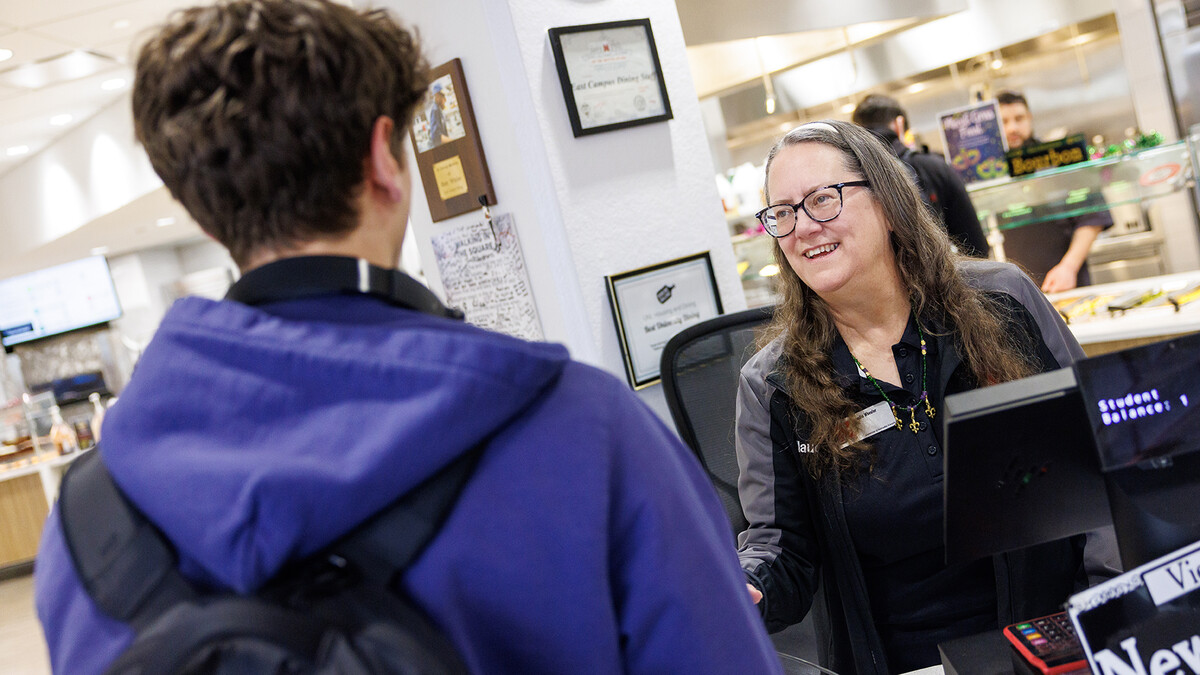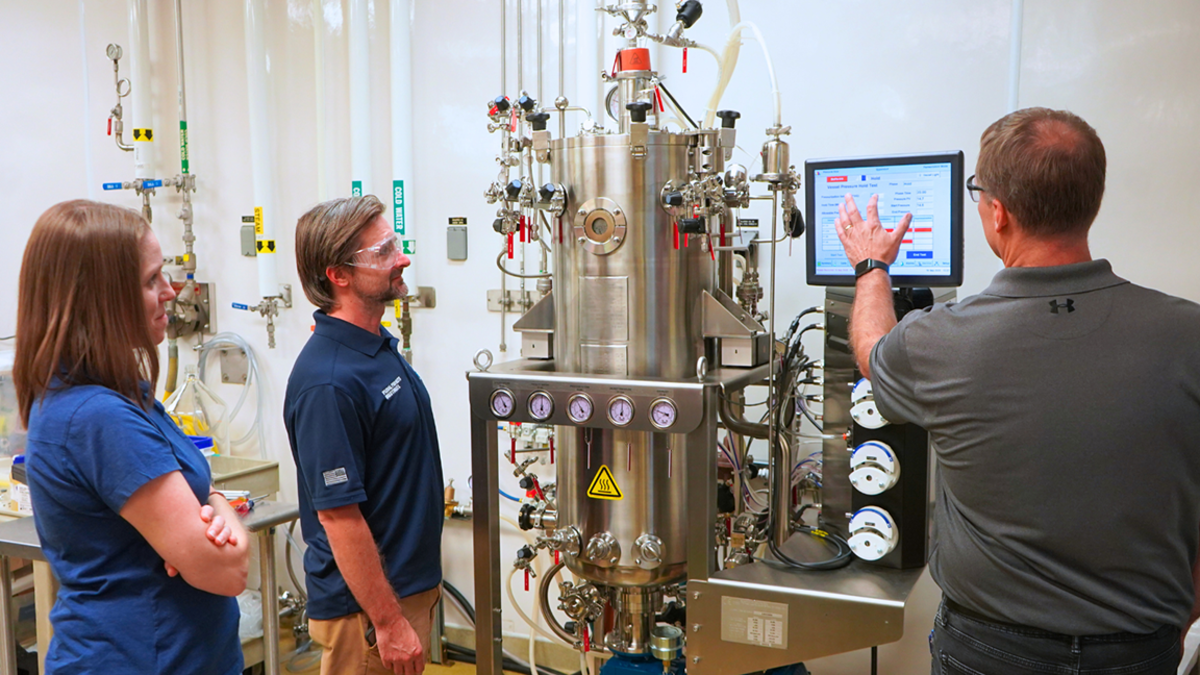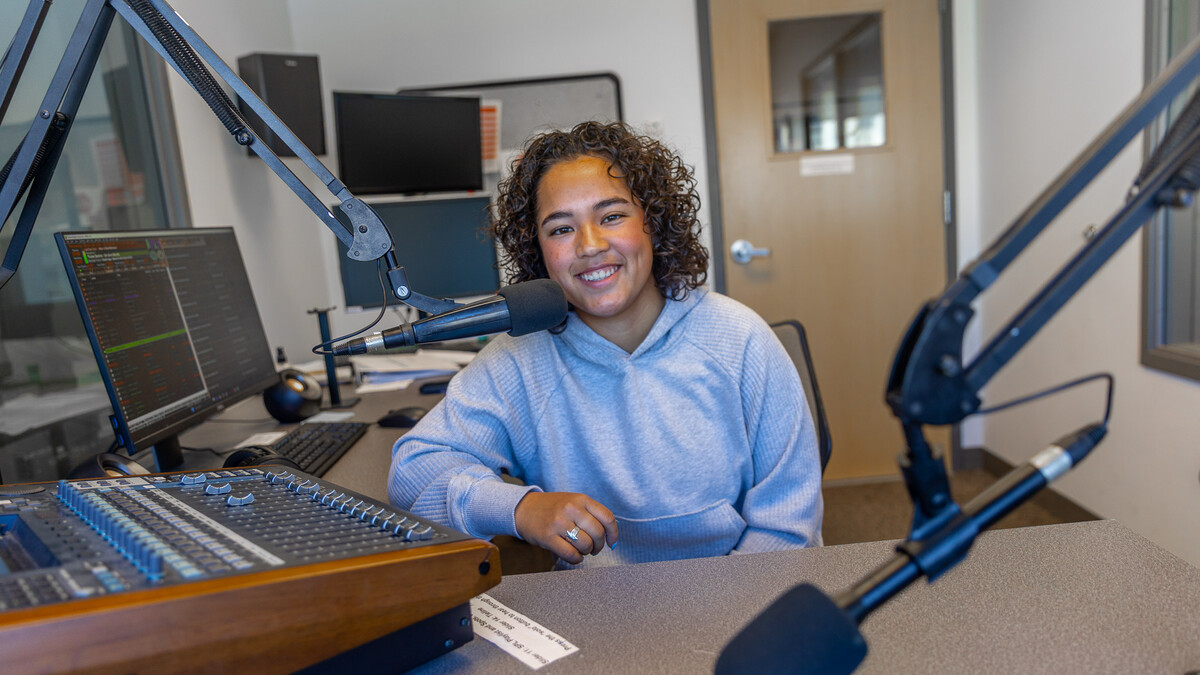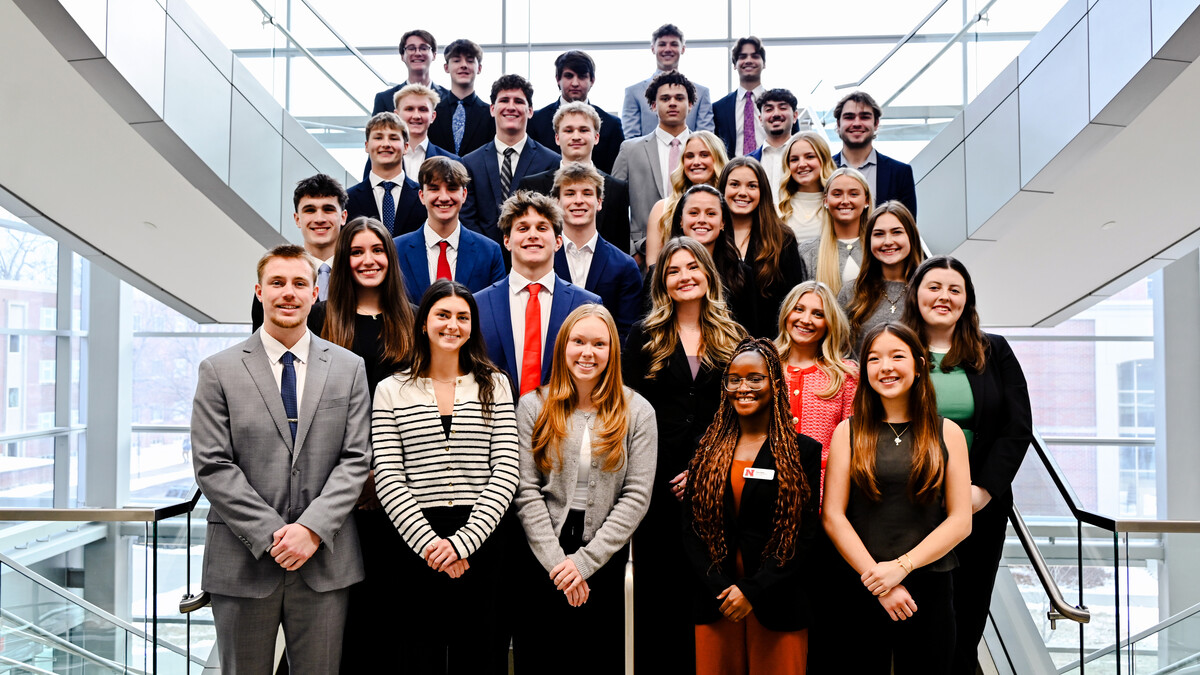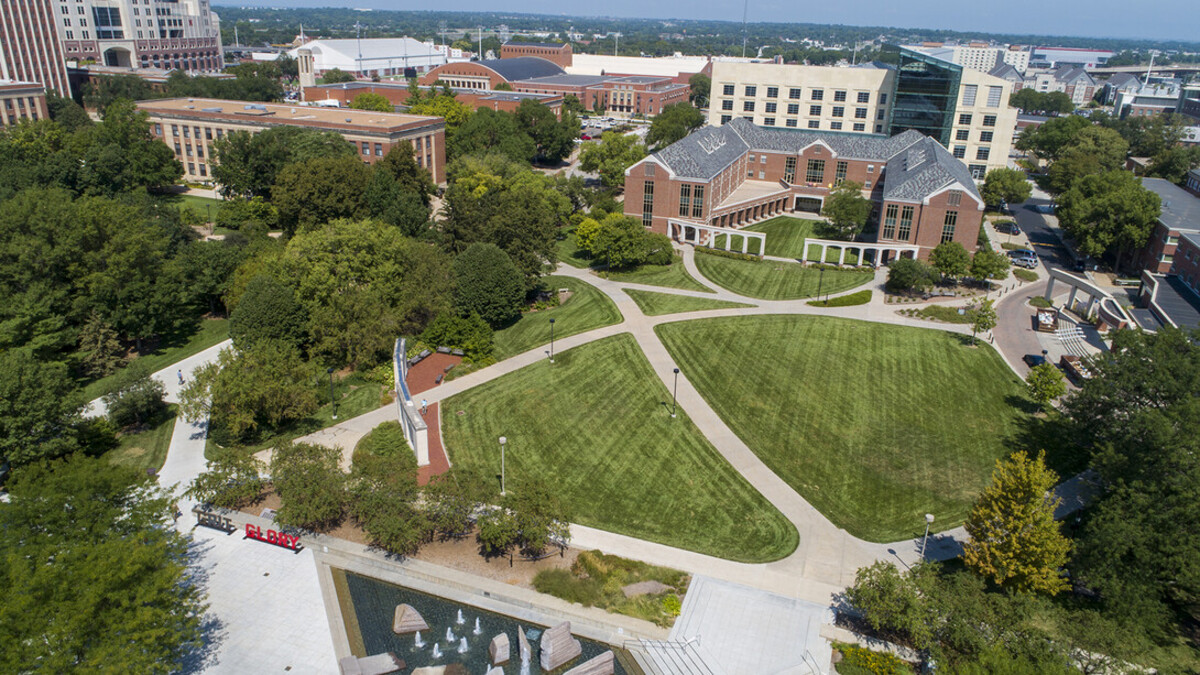
A place known for crowds and cheers became a place for quiet reflection in the early morning hours of Sept. 11.
Nearly 200 members of University of Nebraska–Lincoln ROTC groups and student veterans and around 75 local first responders ran the stairs at Memorial Stadium to commemorate the lives lost in the terrorist attacks of Sept. 11, 2001. The intent is to climb 110 flights of stairs, roughly equivalent to the number of stairs first responders would have climbed in the World Trade Center on that day.
“They put others before themselves,” said Lt. Col. Philip Garito, commander of the Air Force ROTC.
Wyatt Vivier, a junior communication studies major and student veteran, was 2 years old on Sept. 11, 2001, and felt an emotional connection to the day because his uncle served in Operation Desert Storm and Operation Iraqi Freedom.
Vivier, who enlisted himself in 2017, said he kind of shut off the feelings of physical strain at first because the scene was so emotional.
“You don’t even think about how bad your legs are hurting until the end here,” he said. “You get to that top row and look around and it’s a really inspiring scene.”

He said moments like this are important as an opportunity be part of something bigger than one person and as a reminder of all of the people who died that day.
“It’s important to preach sacrifice and on that day, thousands of people made the ultimate sacrifice,” Vivier said. “In the Air Force, one of our core values is service before self.”
Garito was a student in Air Force ROTC at Nebraska living in Pound Hall on the day of the attacks. He said he hopes he can be an example to current members of what they might be asked to do.
“I’m an example of a student who came from the University of Nebraska and then supported 20 years of the War on Terror,” Garito said. “At any moment, it’s unfortunate, but something like this could happen again. Nobody picks it but it happens, and how do you respond?”
Garito encouraged participants to use the time to think about putting others first, even when they are running out of energy to keep going.

“As you’re starting to get physically exhausted, just keep that external motivation of, ‘I’m doing this for somebody else,’” he said.
Garito hopes the exercise helps participating ROTC members remember the mission given to the military following the attacks to prevent something like that from happening again.
“That’s going to be their mission when they graduate here as they continue their military service, not only with our partners in the United States, but our partners overseas,” he said.
The attacks of September 11 were remembered elsewhere on campus, too. Around a dozen members of the Husker community planted flags in the grass outside Nebraska Union, in partnership with the Association of Students of the University of Nebraska. Caleb Alexander, a sophomore from Omaha, said although he was not born yet when the attacks happened, they still had a huge impact on his life and family. Both of his parents were in the military at the time so the day heavily influenced his childhood, from moves to deployments, he said. He said it’s significant to be able to take a moment to think about everyone who was affected.

“As a dependent, it means so much to be able to remember that and acknowledge it,” Alexander said. “It doesn’t make up for all of it, but it’s nice being able to recognize it and having other people recognize it.”
He said even though he didn’t experience the events himself, learning about what happened helps him see how it has stayed with people more than 20 years later.
“It’s still very recent,” Alexander said. “Having grown up with it, and learning about it, you realize it really shaped a lot of modern America.”
